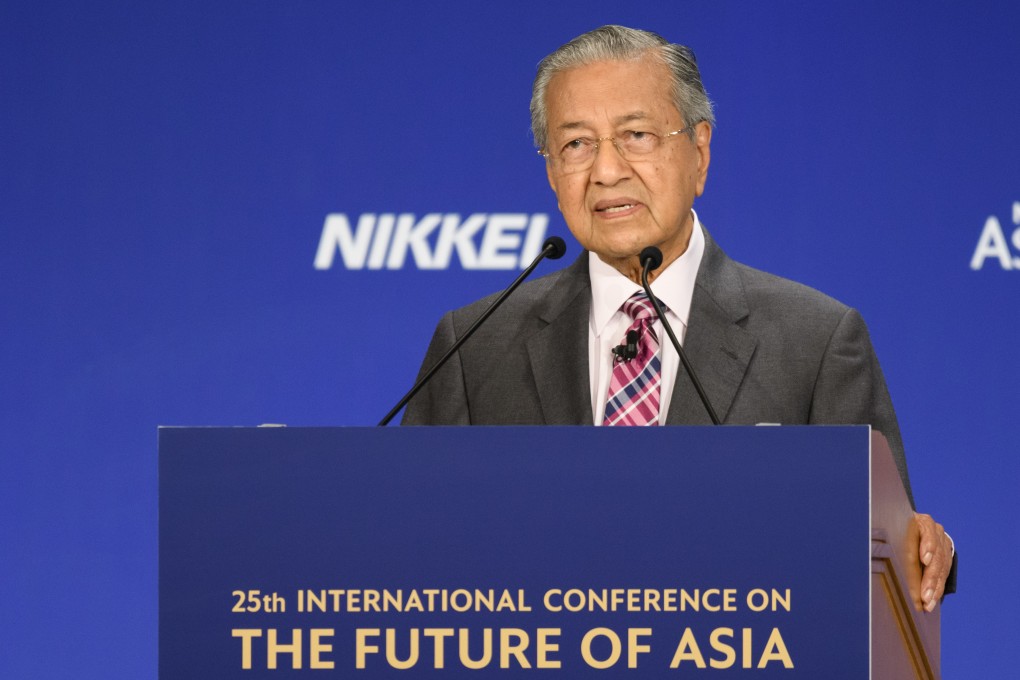Advertisement
Malaysia’s Mahathir backs Huawei, snubbing US blacklist of Chinese telecoms giant
- The Southeast Asian nation’s prime minister has suggested the Trump administration’s campaign against the firm is hypocritical
- Kuala Lumpur has a two-decade relationship with Huawei and will not blindly follow Washington, experts say
Reading Time:4 minutes
Why you can trust SCMP

Malaysia’s Prime Minister Mahathir Mohamad on Thursday offered a forceful defence of embattled Chinese tech giant Huawei, suggesting Western nations bent on shutting it down were being hypocritical in their concerns over the company’s ties to Chinese cyber espionage.
In back-to-back public appearances in Tokyo, the 93-year-old premier dismissed the prospect of his country joining the likes of the United States and its allies – including Japan – in banning government purchases of the Shenzhen-based company’s telecommunications products.
He said while US President Donald Trump’s administration might have grounds for “condemning” Huawei over security concerns, banning it was “not the way to go”.
Advertisement
Mahathir’s comments in support of Huawei are among the strongest yet from an Asian leader, as the company continues to suffer from being caught in the crossfire of the US-China trade war.
Washington and its allies believe Huawei has links with the Chinese military and is likely to add “back doors” into network equipment to spy on Beijing’s strategic rivals.
Advertisement
Advertisement
Select Voice
Select Speed
1.00x